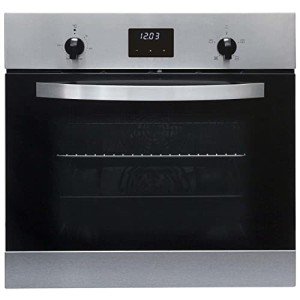Understanding Cookers and Hobs: A Comprehensive Guide
Cooking is an integral element of every day life, and the evolution of kitchen devices plays a significant function in how effectively and effectively people prepare their meals. Among these appliances, cookers and hobs are 2 of the most necessary instruments discovered in modern cooking areas. This post explores the distinctions between cookers and hobs, examines their different types, and provides insights on their features, maintenance, and choice procedure.
What are Cookers and Hobs?
Cookers
Cookers are detailed kitchen devices designed for cooking tasks, usually integrating an oven and a hob. They come in different configurations and types, dealing with varied cooking requirements and preferences.
Hobs
Hobs, on the other hand, are more focused devices mostly used for boiling, frying, and other stovetop cooking approaches. Hobs can be standalone units or an integrated part of larger cookers.
| Feature | Cookers | Hobs |
|---|---|---|
| Function | Combines oven and hob | Stovetop cooking only |
| Design | All-in-one system | Different unit or integrated |
| Types | Electric, gas, double fuel | Gas, electric, induction |
| Setup | Enables for more versatility | Built into the countertop |
| Cost Range | Typically greater | Differs widely |
Types of Cookers
1. Electric Cookers
Electric cookers use electrical energy as their primary source of power. They frequently feature an integrated oven and numerous cooking zones on the hob.
Advantages:
- Even heat distribution
- Offered in numerous styles (e.g., freestanding, built-in)
2. Gas Cookers
Gas cookers run on natural gas or liquefied petroleum gas (LPG). They use immediate heat control, making them a preferred among expert chefs.
Advantages:
- Instant heat modifications
- More inexpensive functional costs
3. Dual Fuel Cookers
Double fuel cookers integrate the heat of gas with the efficiency of electric ovens. This setup allows for the very best of both worlds, offering control and constant results.
Benefits:
- Flexible cooking alternatives
- Precise control over stovetop cooking and baking
4. Variety Cookers
Variety cookers are bigger and more effective than basic cookers, including multiple ovens and hobs for comprehensive cooking jobs.
Advantages:
- Ideal for large families or cooking for occasions
- Provides numerous cooking choices in one appliance
Kinds of Hobs
1. Gas Hobs
Gas hobs are favored for their fast heating and strong flame, making them exceptional for scorching and stir-frying.
Advantages:
- Instant heat and control
- Suitable with any type of pots and pans
2. Electric Hobs
Electric hobs warm up utilizing electric coils or glass-ceramic surfaces, supplying a modern look and effective cooking.
Benefits:
- Easier to clean up
- Consistent surface area ideal for various pots and pans
3. Induction Hobs
Induction hobs utilize magnetic fields to heat pots and pans directly, providing fast and energy-efficient cooking.
Benefits:
- Safe (cool surface area after removing cookware)
- Energy-efficient and precise
4. Strong Plate Hobs
These standard hobs use strong electric plates that warm up slowly.
Advantages:
- Rugged and long lasting
- Generally more affordable than other types
Key Features to Consider
When selecting a cooker or hob, numerous features ought to be taken into account:
- Size and Space: Consider the size of your kitchen and the amount of work area required.
- Cooking Style: Choose based upon preference-- gas for control, induction for efficiency, and so on.
- Effectiveness Ratings: Look for energy-efficient models to lower energy expenses.
- Alleviate of Cleaning: Smooth surfaces assist in simple upkeep.
- Safety Features: Automatic shutoff, flame failure devices, and child locks boost security.
Upkeep Tips
Maintaining cookers and hobs lengthens their life expectancy and makes sure safe operations.
- Routine Cleaning: Wipe down surface areas after use to prevent buildup.
- Examine Seals: Check oven door seals regularly for wear and tear to maintain performance.
- Service Regularly: Schedule expert servicing a minimum of once a year.
- Ideal Cookware: Use cookware proper for your hob type to prevent damage.
Regularly Asked Questions (FAQs)
What is the distinction in between a cooker and a hob?
A cooker combines an oven and hob in one unit, while a hob is usually a standalone home appliance for stovetop cooking.
Do I need an expert to install a gas cooker or hob?
Yes, professional setup is recommended for gas home appliances to make sure security and compliance with local policies.
Can I use any kind of pots and pans on induction hobs?
Induction hobs need magnetic cookware. Stainless-steel or cast iron pots work best. Non-magnetic products will not heat up.
Are electric cookers more energy-efficient than gas cookers?
While both have advantages, electric cookers tend to be more energy-efficient total, especially with contemporary, high-efficiency designs.
How typically should I clean my cooker or hob?
It is best to clean them after each usage and carry out a thorough cleansing weekly to prevent accumulation and residue.
Understanding the distinctions, functions, types, and upkeep tips for cookers and hobs is vital for any home cook. By choosing click the following internet page to their cooking requirements, users can improve their cooking experience, making meal preparation an effective and pleasurable chore. Whether selecting the immediate control of gas or the smooth performance of induction, selecting the appropriate cooker or hob can lead to a significantly boosted kitchen experience.

